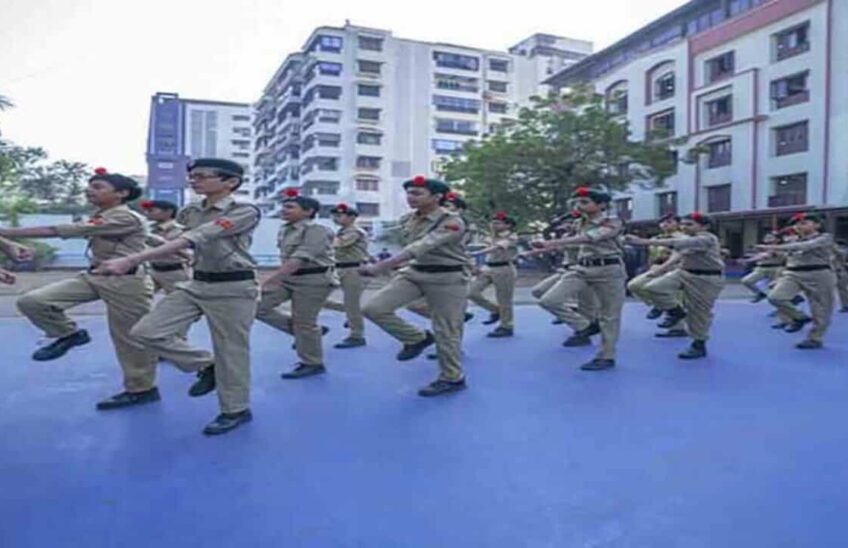
Students who participate in extracurricular activities that match their interests, passions, and personal objectives are the most successful. Sports like basketball, soccer, or swimming encourage discipline, collaboration, and physical conditioning, but they might not be appropriate for every student. Similar to this, artistic endeavors that appeal to students who have a taste for the arts include music, dance, theater, and painting. These activities encourage creativity, self-expression, and emotional intelligence.
Furthermore, leadership programs, volunteer opportunities, and community service projects help students develop empathy, social responsibility, and leadership skills while also motivating them to make significant contributions to society. In the end, the best extracurricular activities for students are those that strike a balance between opportunities for growth, skill development, and personal enjoyment. This allows them to explore a variety of interests, identify their strengths, and grow into well-rounded people who are ready for whatever challenges lie ahead.
What are extracurricular activities
Activities that are done outside of the standard academic curriculum are referred to as extracurricular. Sports like basketball, soccer, swimming, and tennis are examples of these activities that offer chances for skill development, teamwork, and physical fitness. Moreover, artistic pursuits such as painting, dancing, theatre, and music provide opportunities for emotional pleasure, self-discovery, and creative expression. In addition, students can engage in debate teams, academic organisations, scientific fairs, and maths competitions, which promote critical thinking, intellectual curiosity, and problem-solving abilities.
Moreover, extracurricular activities transcend conventional fields to encompass volunteer work, community service projects, leadership courses, and business endeavours. By taking part in such activities, students can make significant contributions to their communities and acquire leadership, empathy, and social responsibility skills.
Types of extra curricular activities
Extracurricular activities comprise a wide range of endeavors intended to enhance the academic program and promote students’ overall growth. Sports like swimming, volleyball, basketball, and soccer offer chances to develop leadership, teamwork, and physical health. These exercises inspire kids to develop a passion for leading active lives while fostering healthy competitiveness, self-control, and resilience.
Academic groups and contests can provide opportunities for skill improvement and intellectual stimulation. Students can improve their critical thinking abilities, participate in intellectual conversation, and gain a deeper understanding of academic subjects through debating societies, science clubs, math Olympiads, and language competitions. Through these activities, students develop their curiosity, problem-solving skills, and desire for knowledge, setting them up for success in the classroom and a lifetime of learning.
Advantage of extracurricular activities
Beyond the classroom, extracurricular activity participation has several benefits for students. First of all, taking part in these kinds of events encourages the growth of vital life skills including communication, teamwork, leadership, and time management. Participating in team sports or group projects teaches children how to collaborate with others, work through problems, and accomplish shared objectives. These encounters foster interpersonal, adaptive, and resilient abilities that are beneficial in both personal and professional settings.
Children who attend schools associated with the CBSE also benefit from excellent educational resources, state-of-the-art facilities, and knowledgeable faculty members who are dedicated to supporting their social, emotional, and intellectual growth. The affiliation with CBSE ensures that graduates receive highly recognized and accepted credentials both domestically and internationally, opening doors to postgraduate education and career opportunities.
Importance of extracurricular activites
Extracurricular activities are essential to children’ overall development because they provide a wealth of advantages that go beyond the classroom. First and foremost, involvement in extracurricular activities promotes the development of critical life skills like communication, teamwork, leadership, and time management. Students gain skills in successful teamwork, conflict resolution, and goal achievement through team sports, clubs, and community service initiatives.
Furthermore, extracurricular activities help children develop into well-rounded people by giving them opportunities to discover and pursue their hobbies, interests, and talents. Participating in various events including athletics, the arts, music, debating, and volunteer work enables kids to identify their areas of strength, polish their abilities, and develop a feeling of self and mission. Engaging in extracurricular activities develops emotional intelligence, creativity, and self-confidence, which in turn promotes a good self-concept and improves general wellbeing and you contact us for more information.
Frequently Asked Questions
Q1. What are the key factors to consider when evaluating top GSEB schools?
A. When evaluating top GSEB schools, consider factors such as academic reputation, faculty qualifications, infrastructure, extracurricular activities, student-teacher ratio, location, fees, facilities, and the school’s ethos aligning with your child’s educational goals and holistic development needs.
Q2. What are the advantages of studying in a top GSEB school?
A. Studying in a top GSEB school offers advantages such as high-quality academic programs aligned with state standards, experienced faculty members, access to modern infrastructure and resources, diverse extracurricular activities, recognized certifications, and pathways to higher education and career opportunities.
Q3. How do top GSEB schools prepare students for competitive exams?
A. Top GSEB schools prepare students for competitive exams by offering specialised coaching, practice tests, and exam-oriented study materials. They provide guidance on exam patterns, time management strategies, and subject-specific preparation, equipping students with the skills and confidence needed to excel in competitive assessments.
Q4. How do top GSEB schools foster a positive and inclusive learning environment?
A. Top GSEB schools foster a positive and inclusive learning environment by promoting respect, empathy, and diversity among students and staff. They prioritise creating safe spaces for open dialogue, celebrate cultural differences, offer support services for diverse needs, and address instances of discrimination or exclusion promptly and effectively.



Leave a Reply